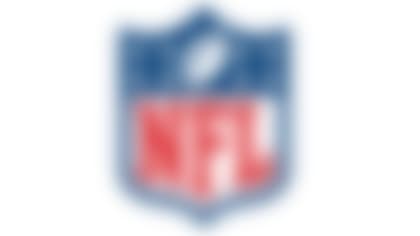We're right in the middle of the seemingly endless march to the Super Bowl, when the ratio of news stories to actual news is something like a thousand to one. We get in-depth comparisons between offenses, defenses, special teams units, quarterbacks, cornerbacks, schemes, philosophies and even uniforms.
But to me, the most interesting matchup in Super Bowl XLIX is the one between the two coaches, Bill Belichick and Pete Carroll.
If you look at the season as a whole, it's hard to say we don't have the two best teams in the NFL facing off in the Super Bowl -- as well as, in my opinion, the two best coaches in pro football. Their striking similarities are as noteworthy as the contrasts in their respective personalities.
Early rise ... and fall
Belichick and Carroll are contemporaries. Both are in their early sixties and, at one point, were regarded as the "boy geniuses" of the NFL. Belichick got his first chance to be a head coach with the Cleveland Browns at the ripe old age of 38. That's not that young by today's standards, but this kind of hiring was much less common in the early 1990s, when the "Old Boys Network" was still thriving in pro football. Carroll took over the New York Jets at age 42. Both crashed and burned with their first chance: Carroll went 6-10 and was run out of town after just one season; Belichick lasted five seasons with the Browns, but was able to produce just one winning campaign. (When Art Modell moved his franchise from Cleveland to Baltimore following the 1995 season, Belichick was not asked to come along for the ride.) Carroll took over his second NFL team at age 45, after Bill Parcells left the Patriots. Although he never fielded a losing team in New England, Carroll's yearly records steadily declined -- from 10-6 to 9-7 to 8-8 -- and he was fired after three seasons on the job. Both men have said they were humbled by their initial NFL head-coaching experiences, and those missteps shaped their fundamental attitudes toward later opportunities.
Defense rules the day
Both coaches have a background on the defensive side of the ball. Belichick is credited with much of the defensive success that Parcells enjoyed with the Giants, Patriots and Jets -- most famously, deploying the schemes that helped Big Blue neutralize the Bills' breakneck "K-Gun" offense in Super Bowl XXV. Over his career, Carroll has developed a legacy of creative secondary play and scheming. His most recognizable tactic is fielding a secondary that plays "long," with big defensive backs who might not have the speed that is typically coveted at the position, but who can compensate for it with size and smarts. Under Carroll, these players have mastered the trail technique, utilizing their ability to turn-and-run with wideouts and their size, which limits the window into which a quarterback can drop a deep ball.
Better to be lucky than good
Both coaches benefit greatly from having premier signal-callers under center. This in no way diminishes Belichick's and Carroll's efforts to build winning teams, but in a league where you must have a franchise quarterback to succeed, both acquired theirs in unique ways. Tom Brady will go down as the greatest sixth-round draft choice in the history of the NFL. The Patriots obviously didn't know they were drafting one of the greatest quarterbacks of all time when they took Brady at No. 199 overall in 2000 -- but you have to give Belichick credit for sticking with him early on, as opposed to going back to Drew Bledsoe once the veteran returned to good health.
Similarly, Carroll adapted smartly in handling the game's most important position. He struggled with mediocre quarterback play in back-to-back 7-9 seasons over his first two years in Seattle. The Seahawks pursued multiple options going into the 2012 season by giving a sizable contract to free agent Matt Flynn, then taking a flier on Russell Wilson in the third round, hoping one of them would produce. Carroll could not have truly known what he would get from either, yet you have to give him credit for going with the rookie from the outset, despite knowing he'd be questioned after spending a healthy sum on a veteran free agent.
Gridiron Moneyball
Neither coach will be mistaken for Brad Pitt in "Moneyball," but both organizations have used the inefficiencies of the NFL marketplace to their advantage in acquiring players and building teams. Belichick has turned getting veteran players on the back end of their career with lesser contract demands into an art form. Carroll and Seahawks GM John Schneider have been absolutely ruthless in dealings -- unafraid to let the makeup of their team change to get the right value. But with Wilson and Marshawn Lynch both approaching free agency, this mentality will be tested.
Know your role
Even though they have been brilliant play-callers in their own right, both coaches have taken the larger approach of being pure head coaches -- overseeing every aspect of the team, rather than micromanaging. They certainly have input, but for the most part, they let their lieutenants craft and call the game plans. This helps them be present and more responsive during the game. Consider what happened in the NFC Championship Game. Mike McCarthy is a brilliant, Super Bowl-winning coach, and one of the best play-callers in the NFL. However, while he was focusing on the next offensive play to call for the Packers, Carroll was free to focus on the minute details of game management in the quest to get his team to rebound from a substantial deficit. Everything from the fake field goal to the triumphant overtime drive demonstrated Carroll's ability to manage the bigger picture. That is also a Belichick specialty -- and a hallmark of most coaches who lead teams to the Super Bowl.
Joe Cool vs. Scrooge
The one main difference I see in these two coaches: Their personal demeanors in dealing with the media. Pete is California cool, quick to smile and readily available. Belichick, as we know, actually looks pained when he has to speak with the press. Even in this respect, though, there is a common ground. Neither is going to tell you a thing about their team or what they are doing. Carroll has just developed a way of doing so with a smile, while Belichick has developed a way of getting you to not even ask.
Follow Brian Billick on Twitter @coachbillick.




